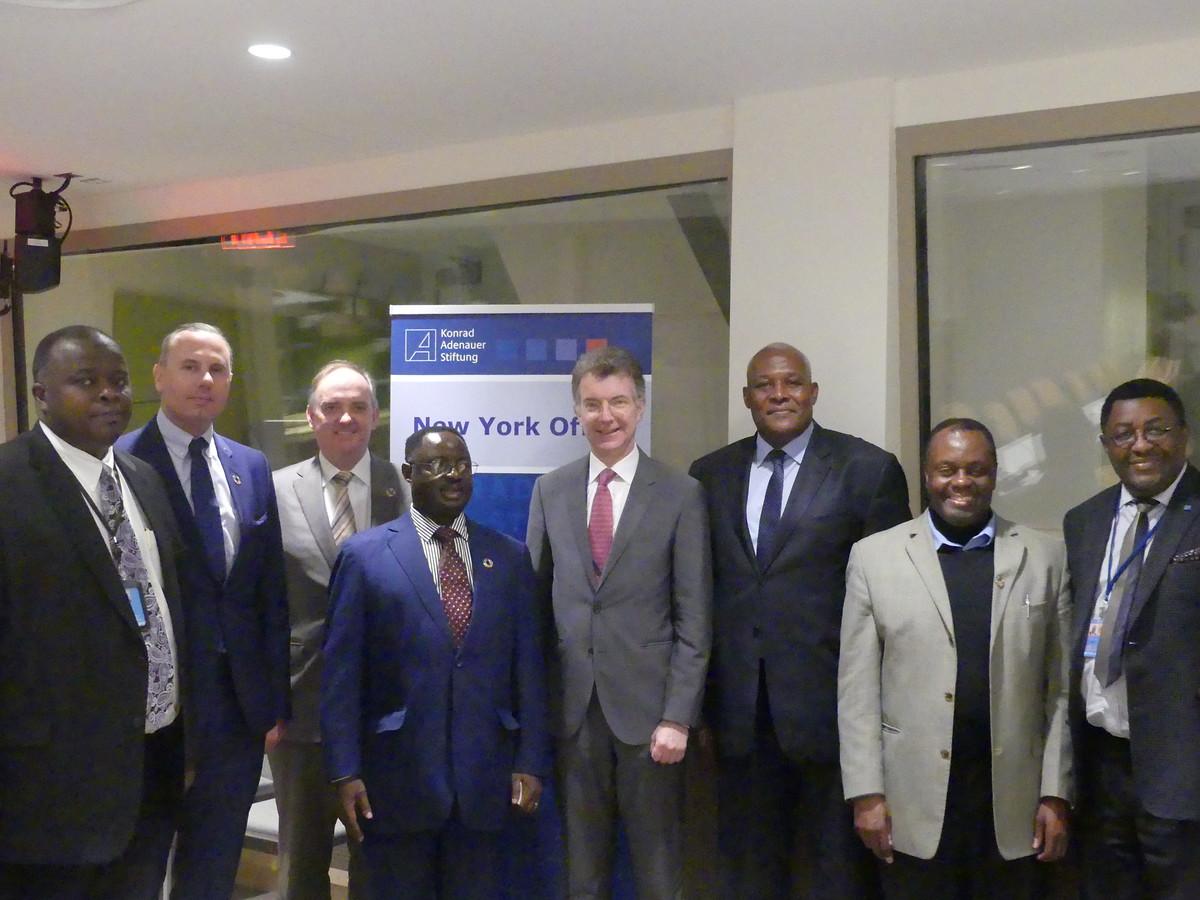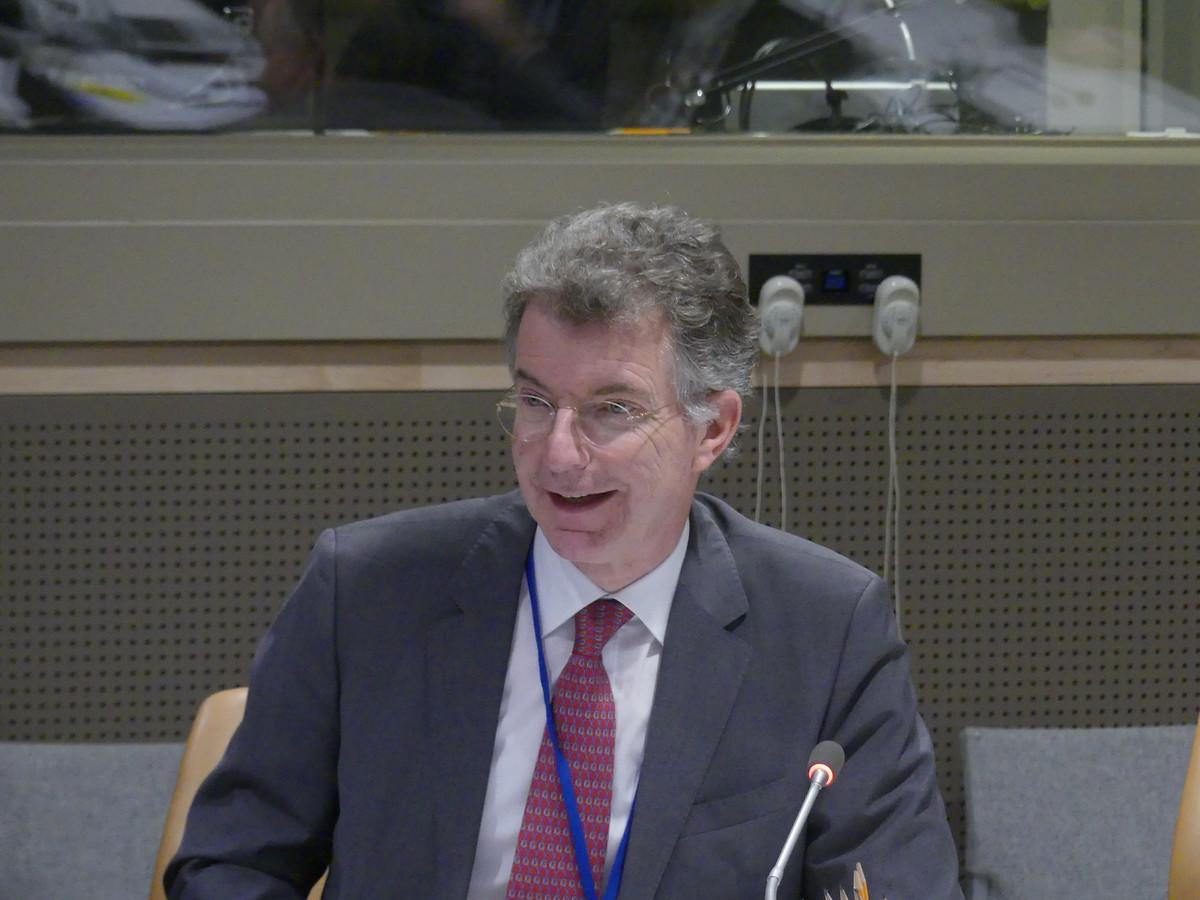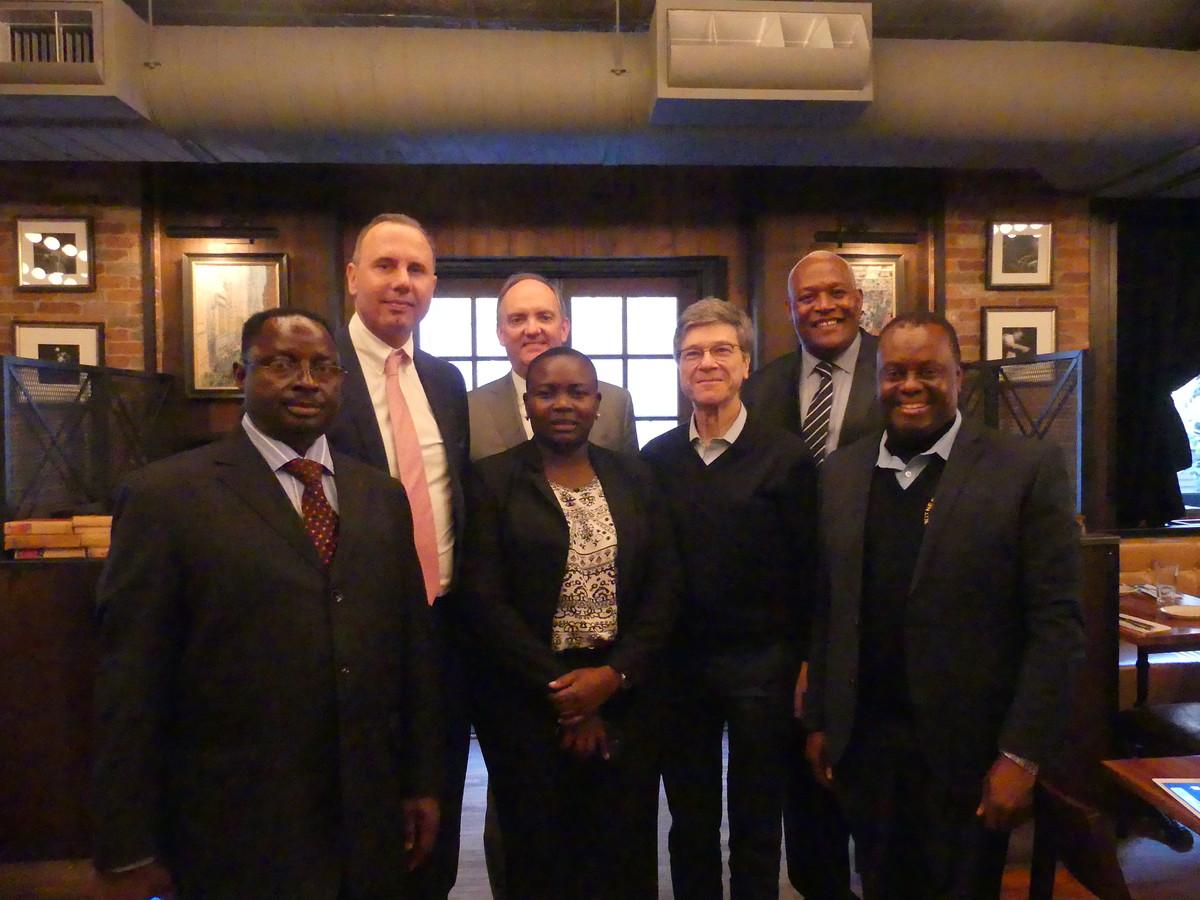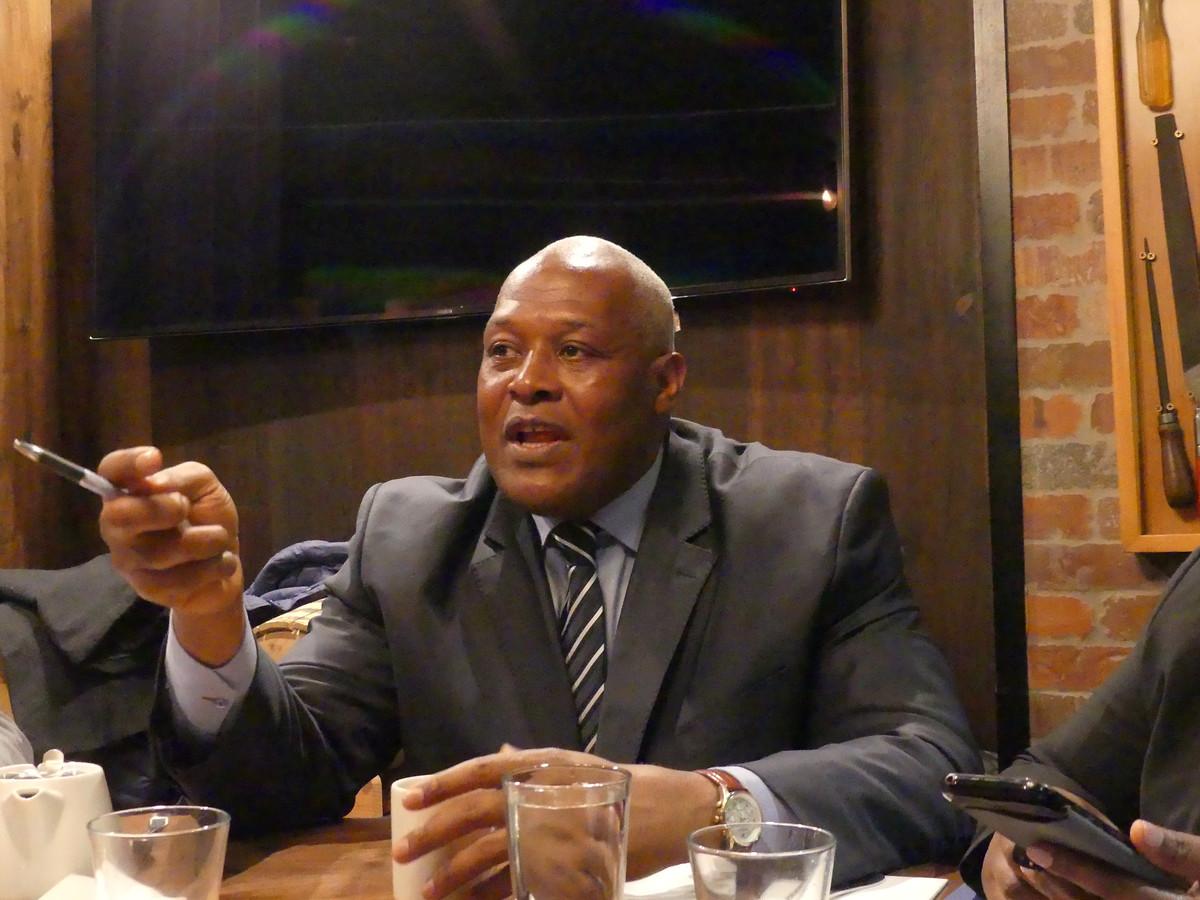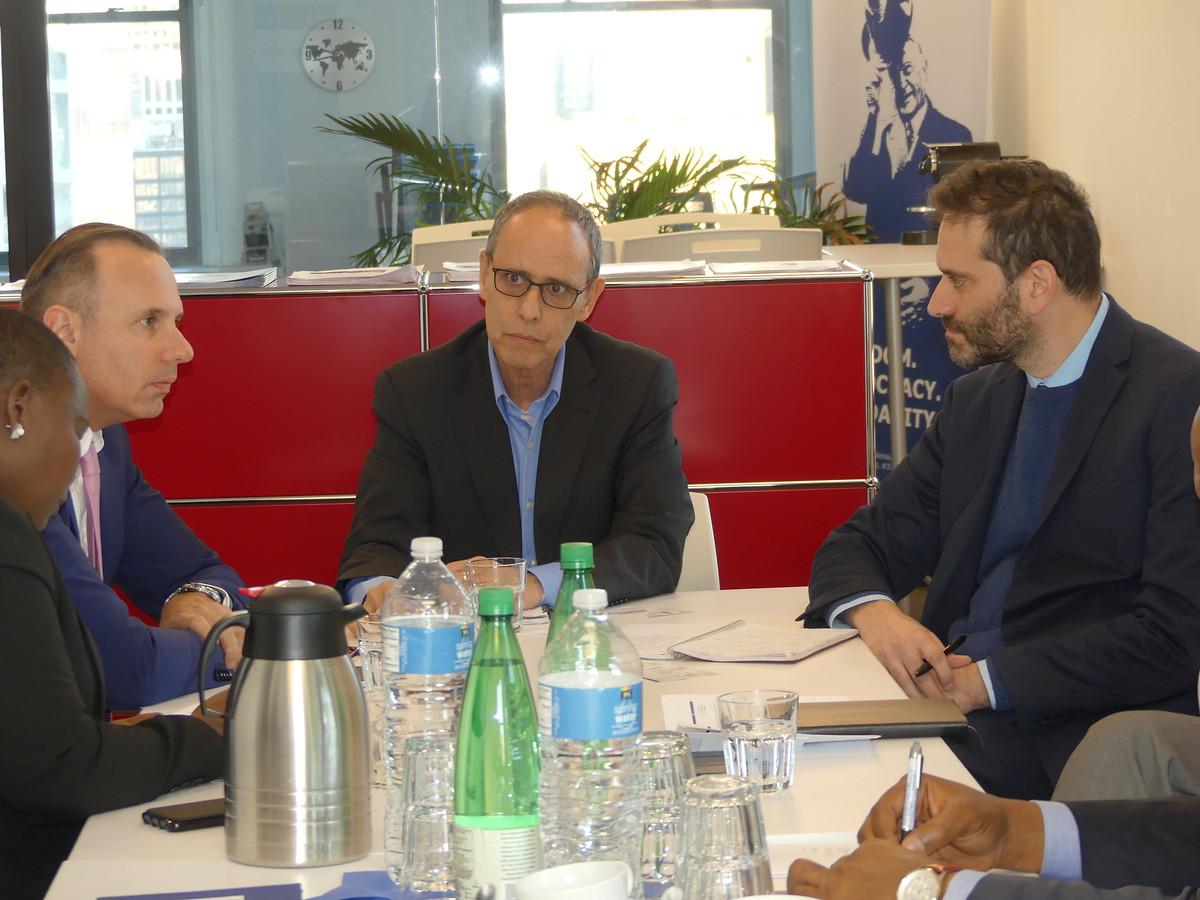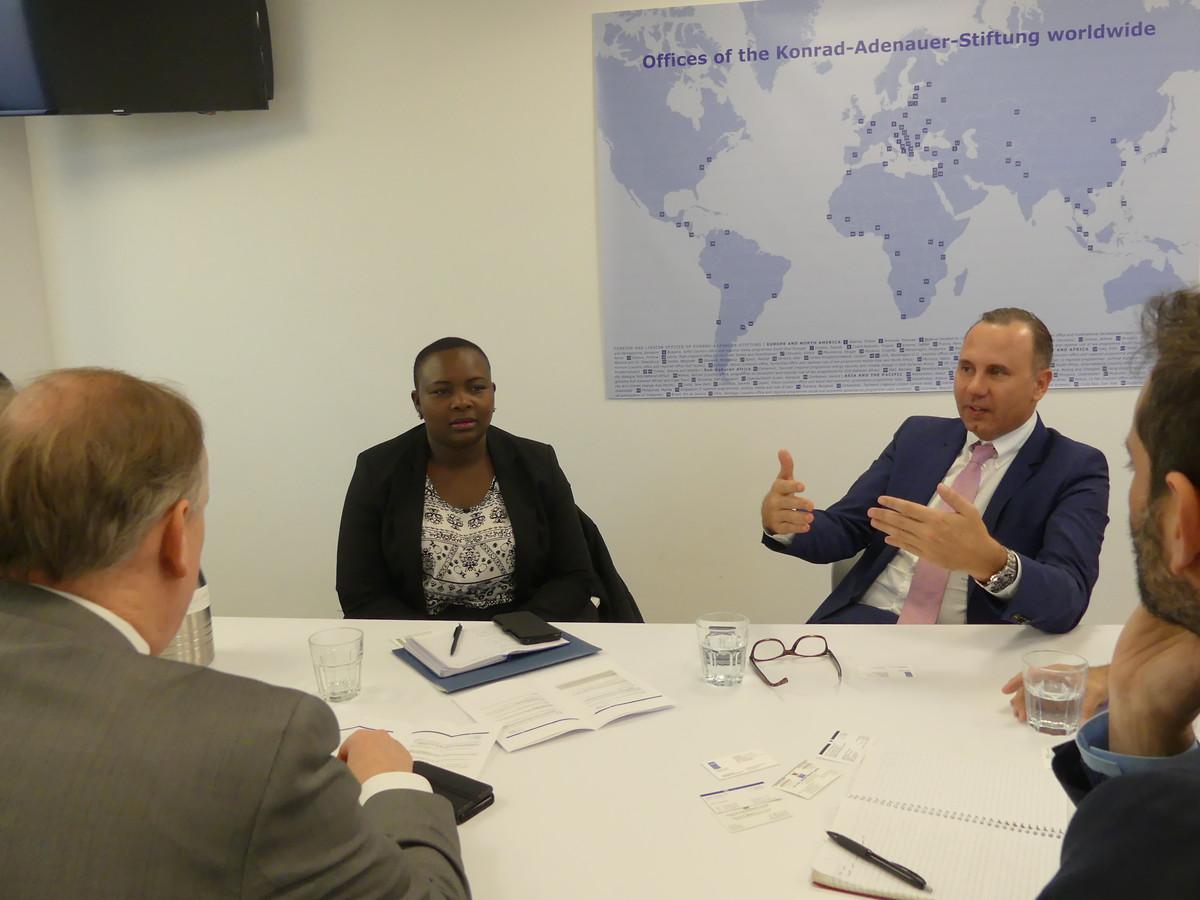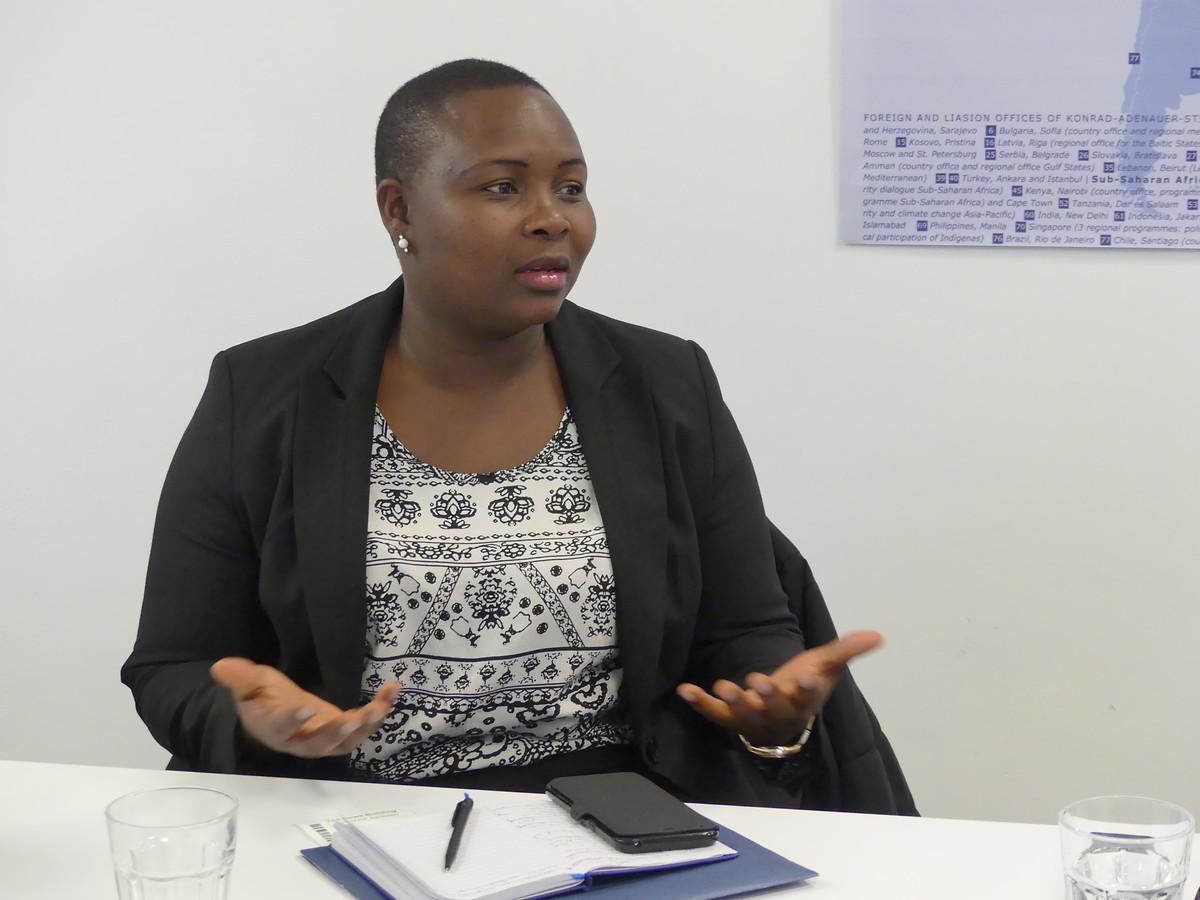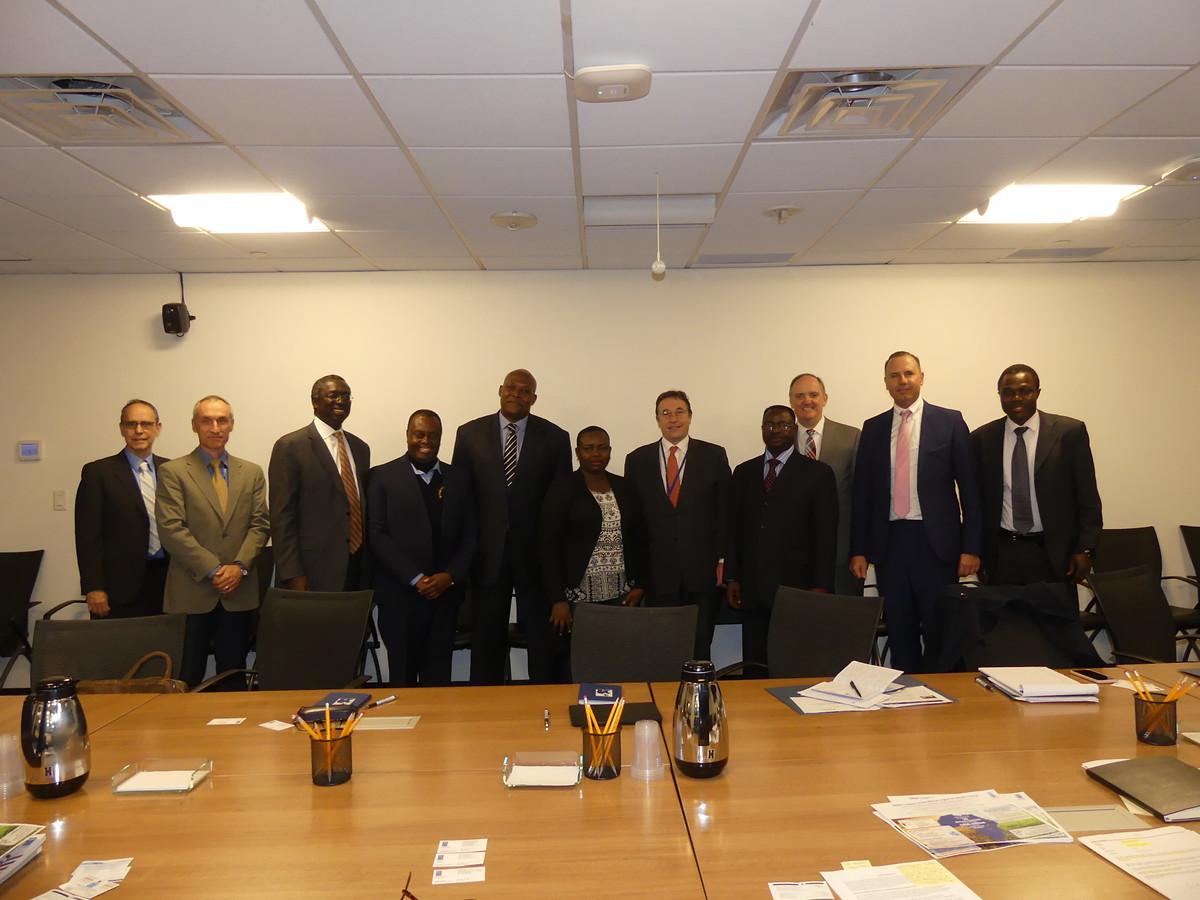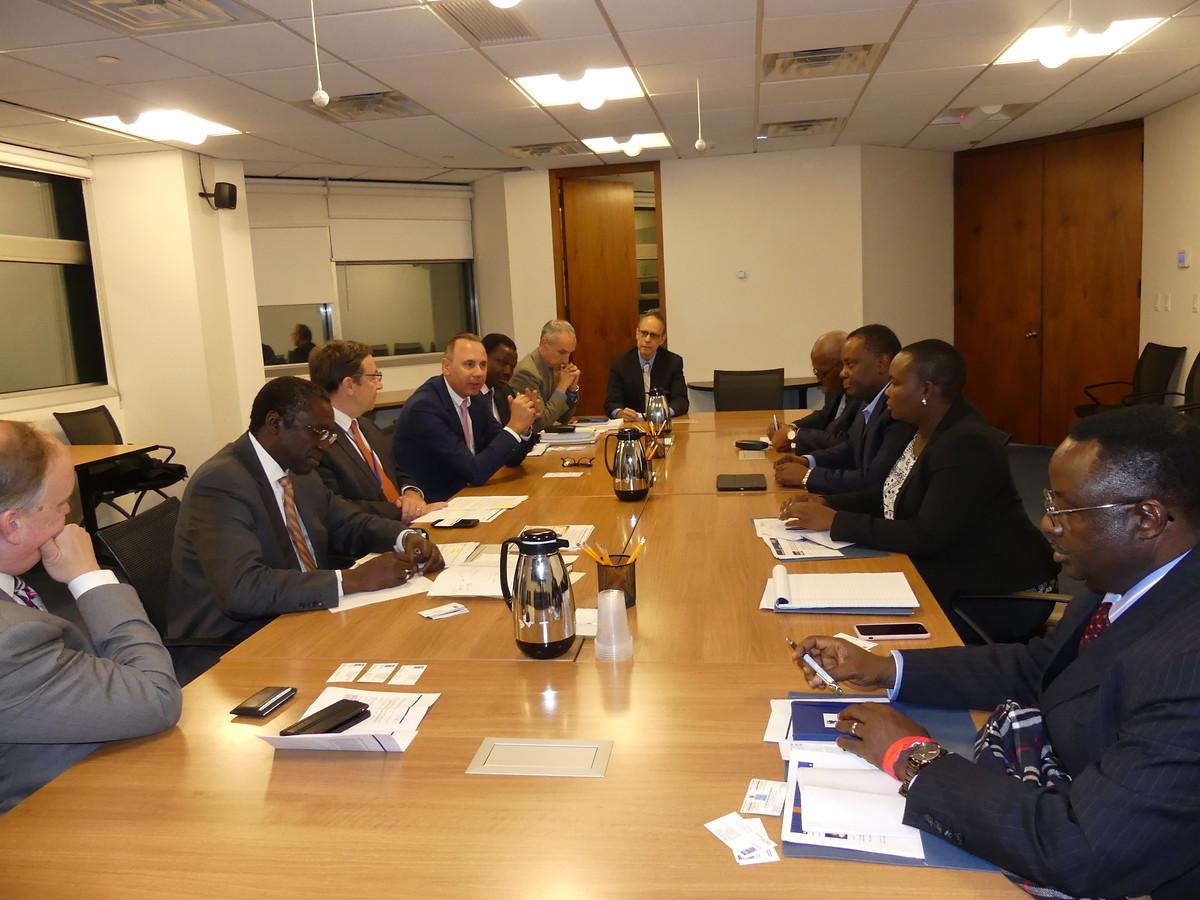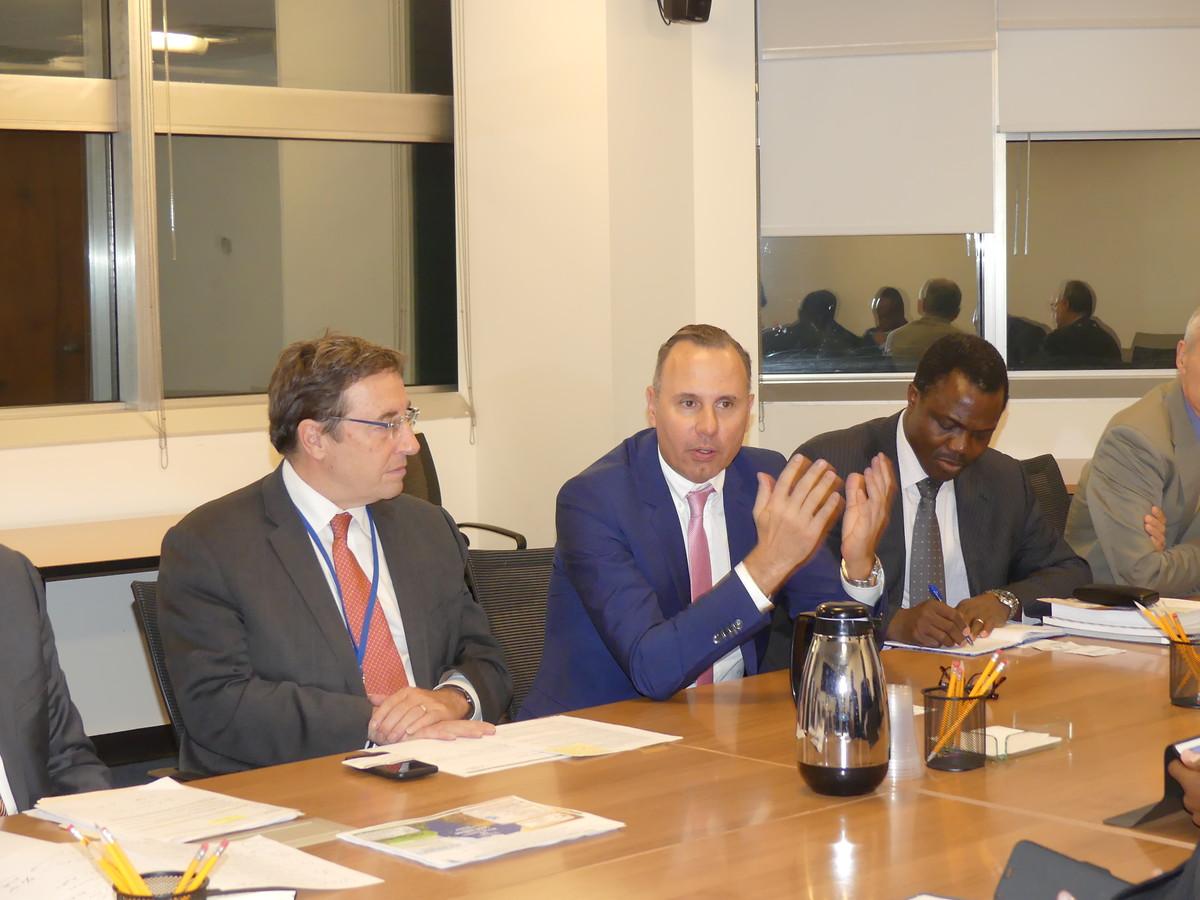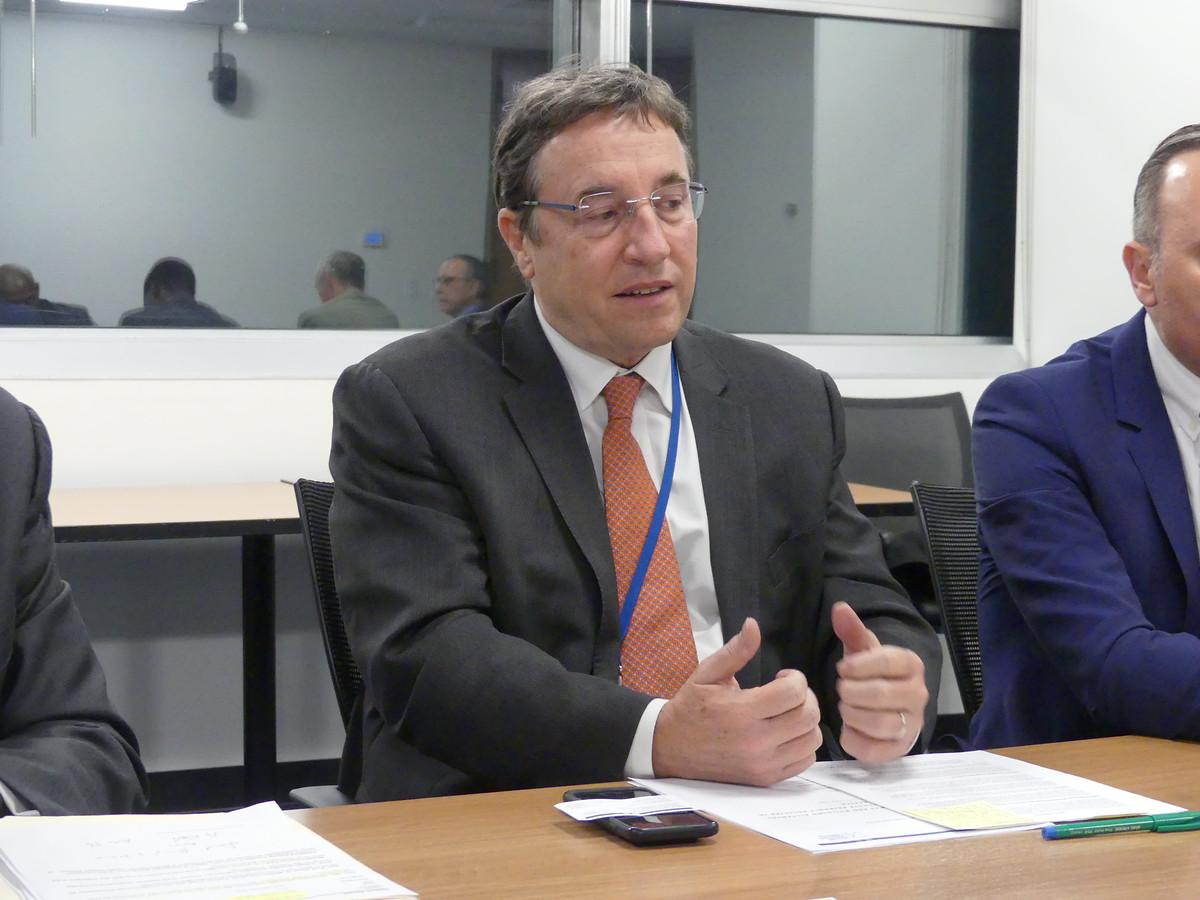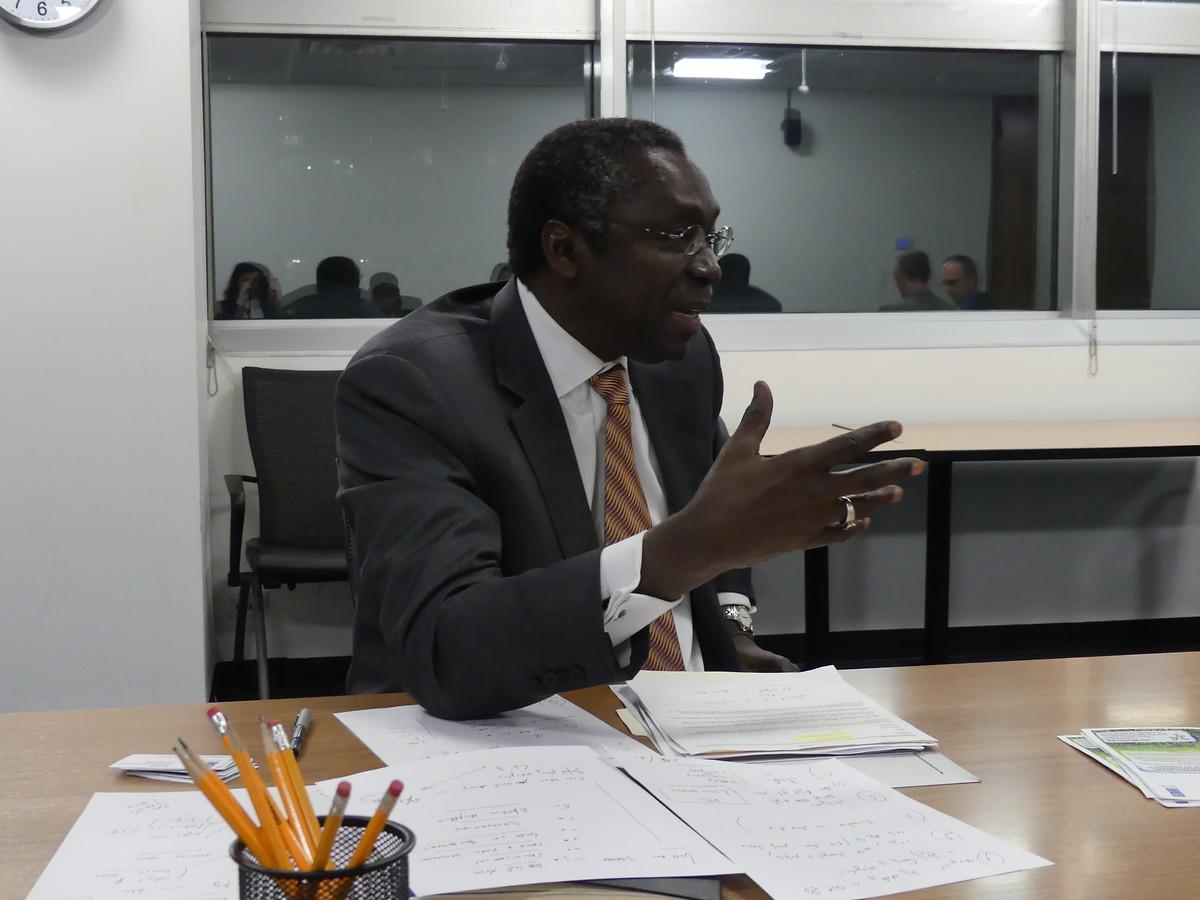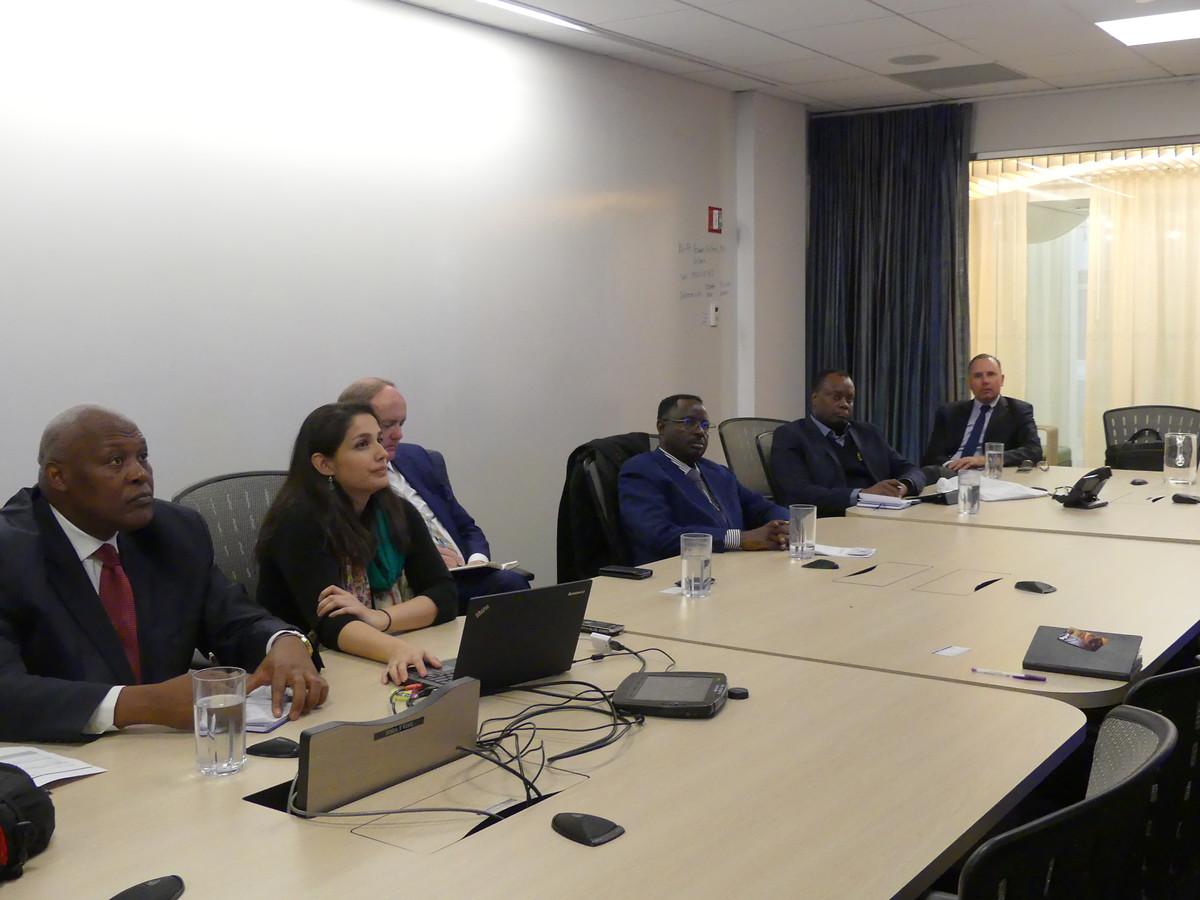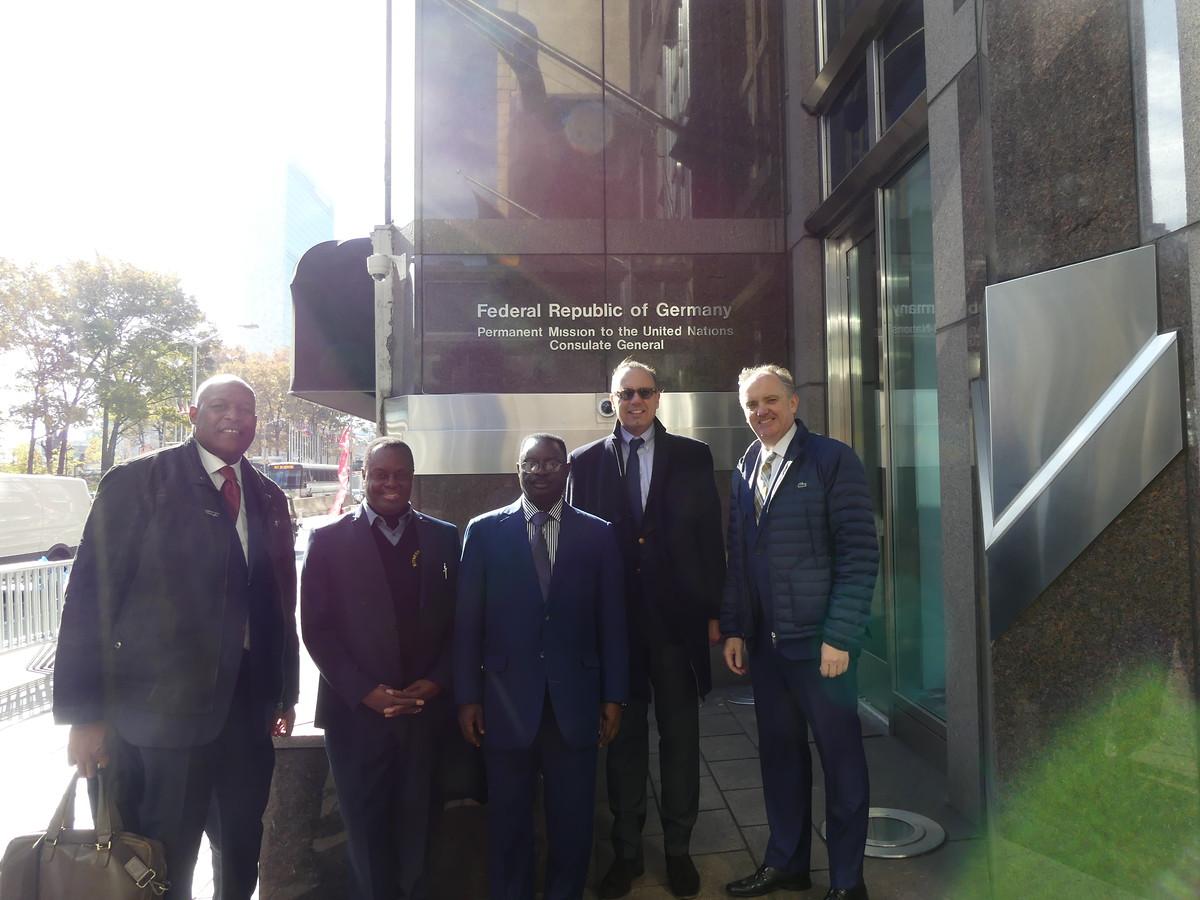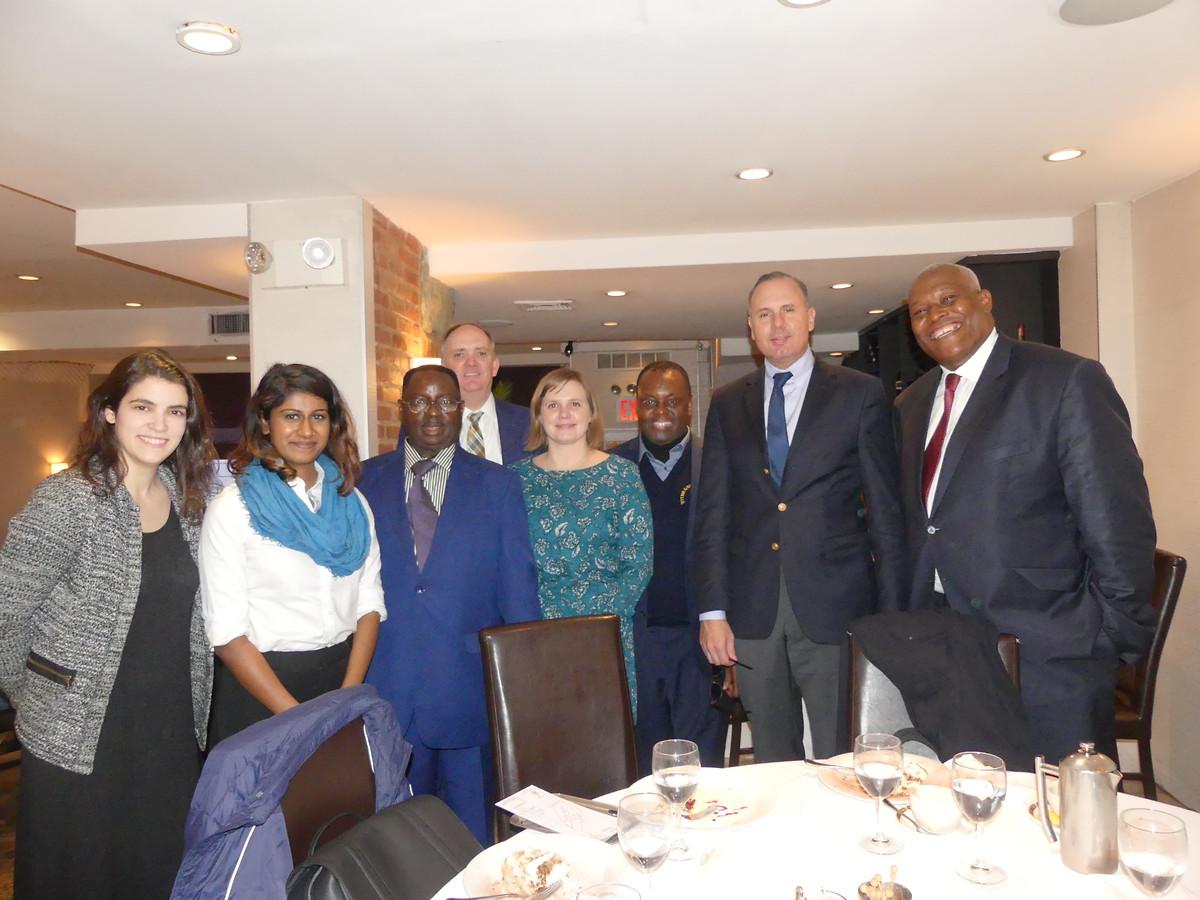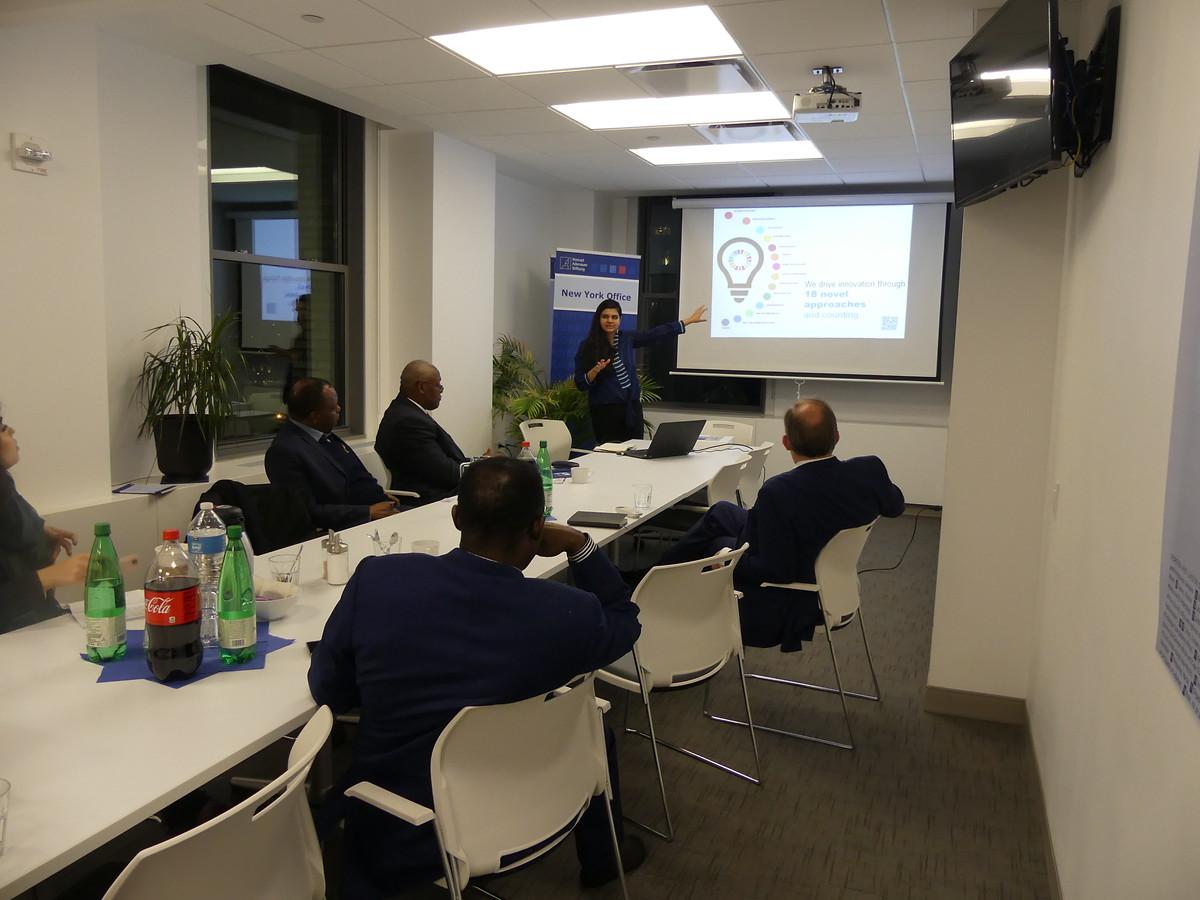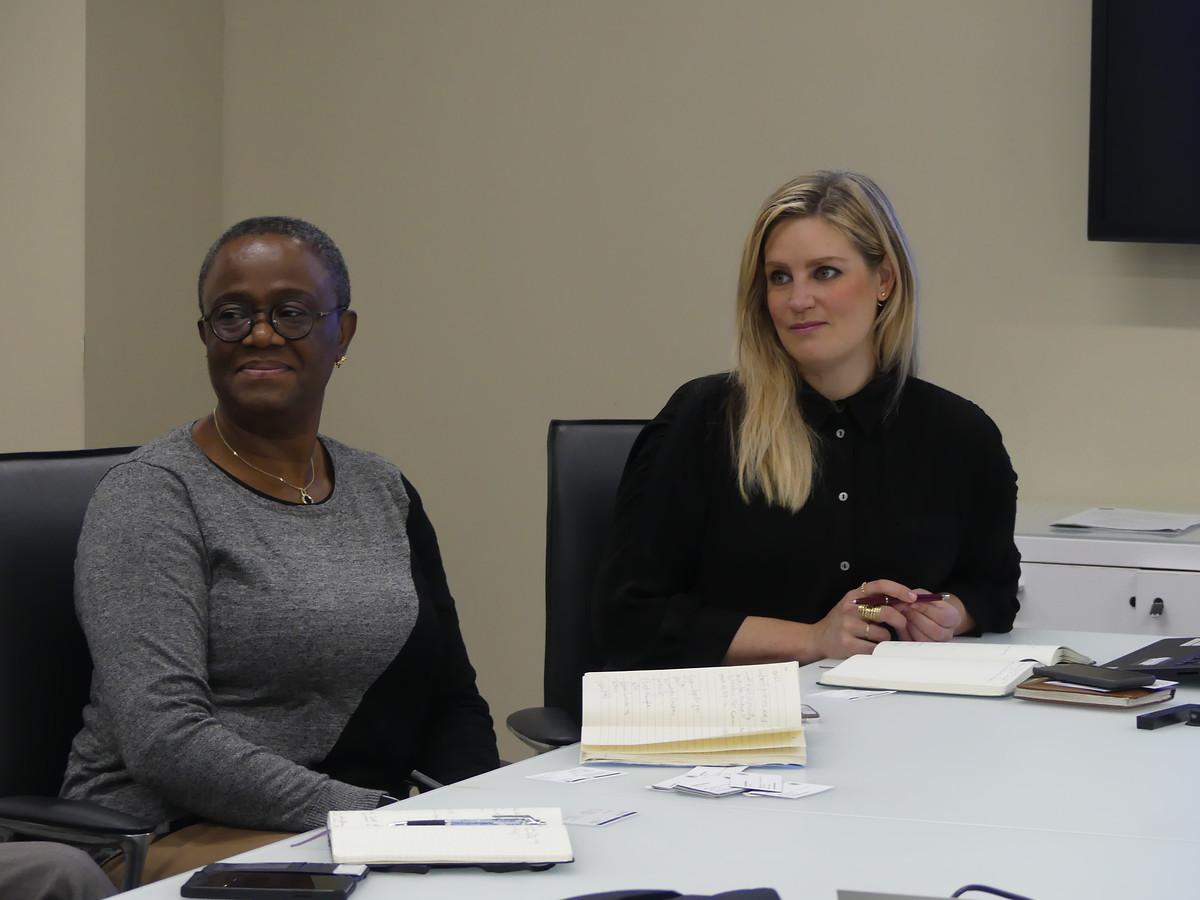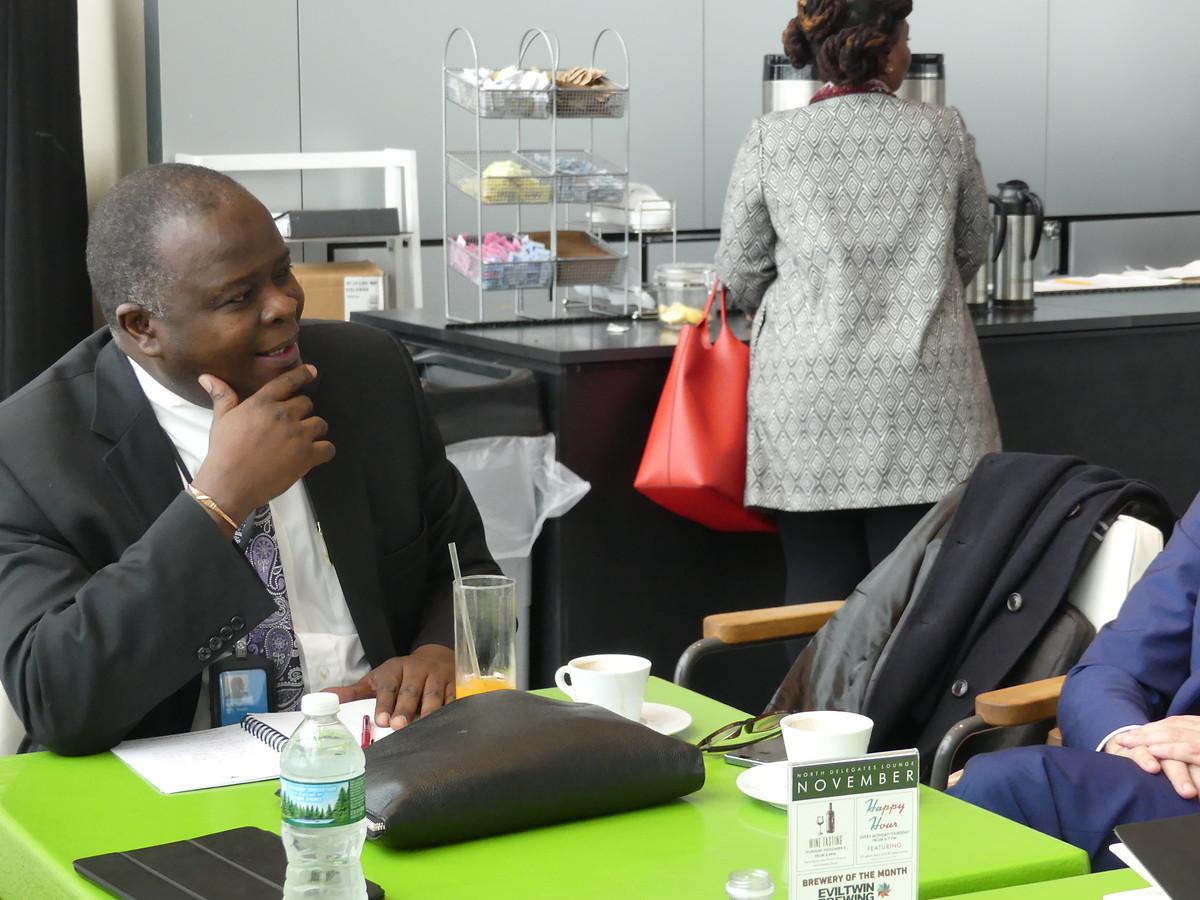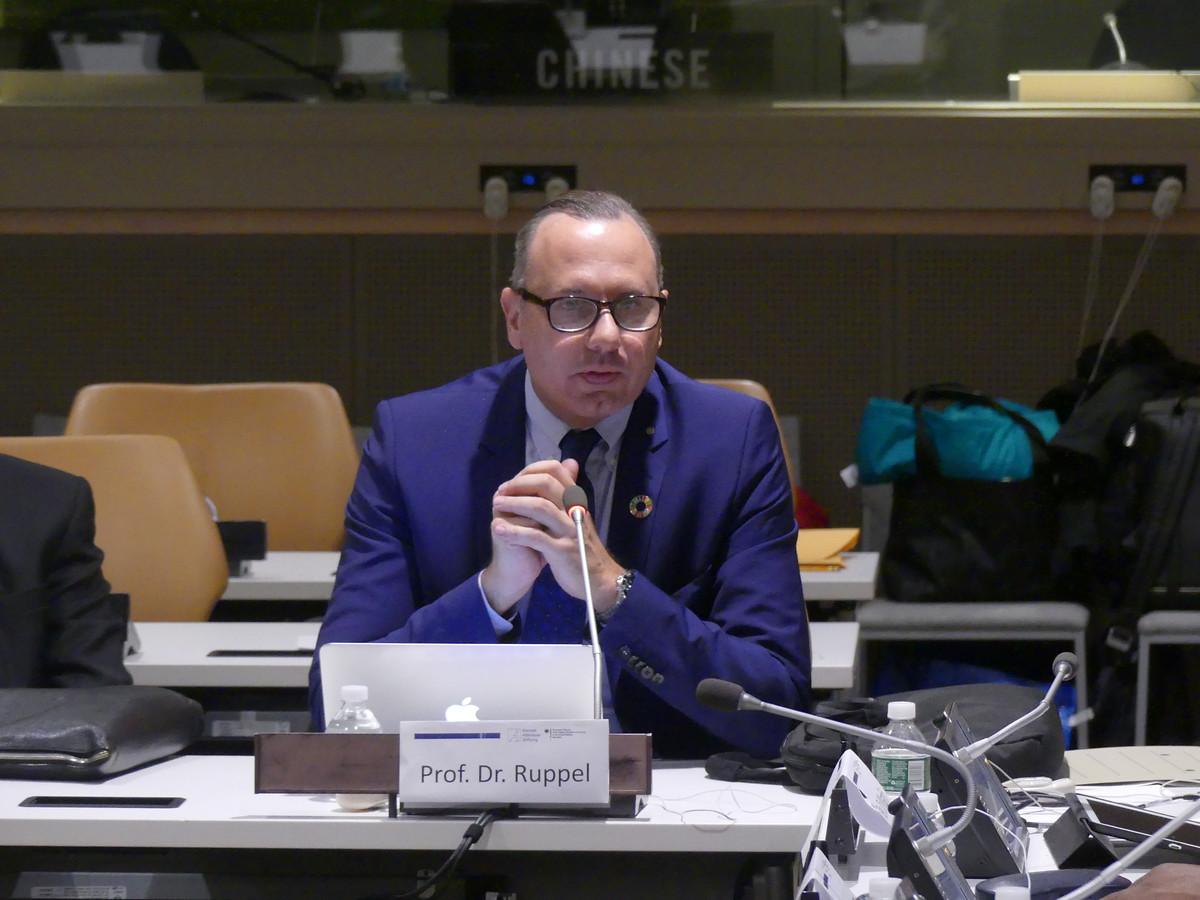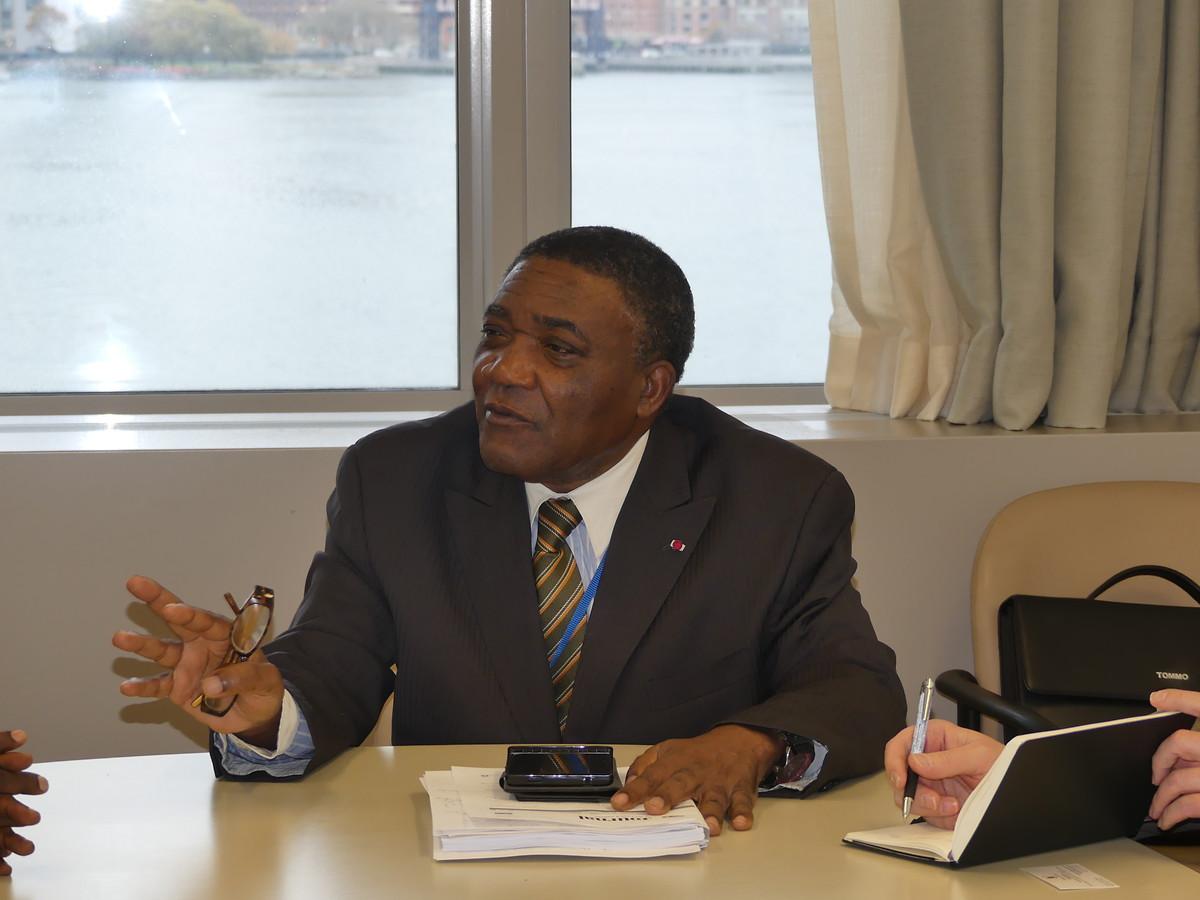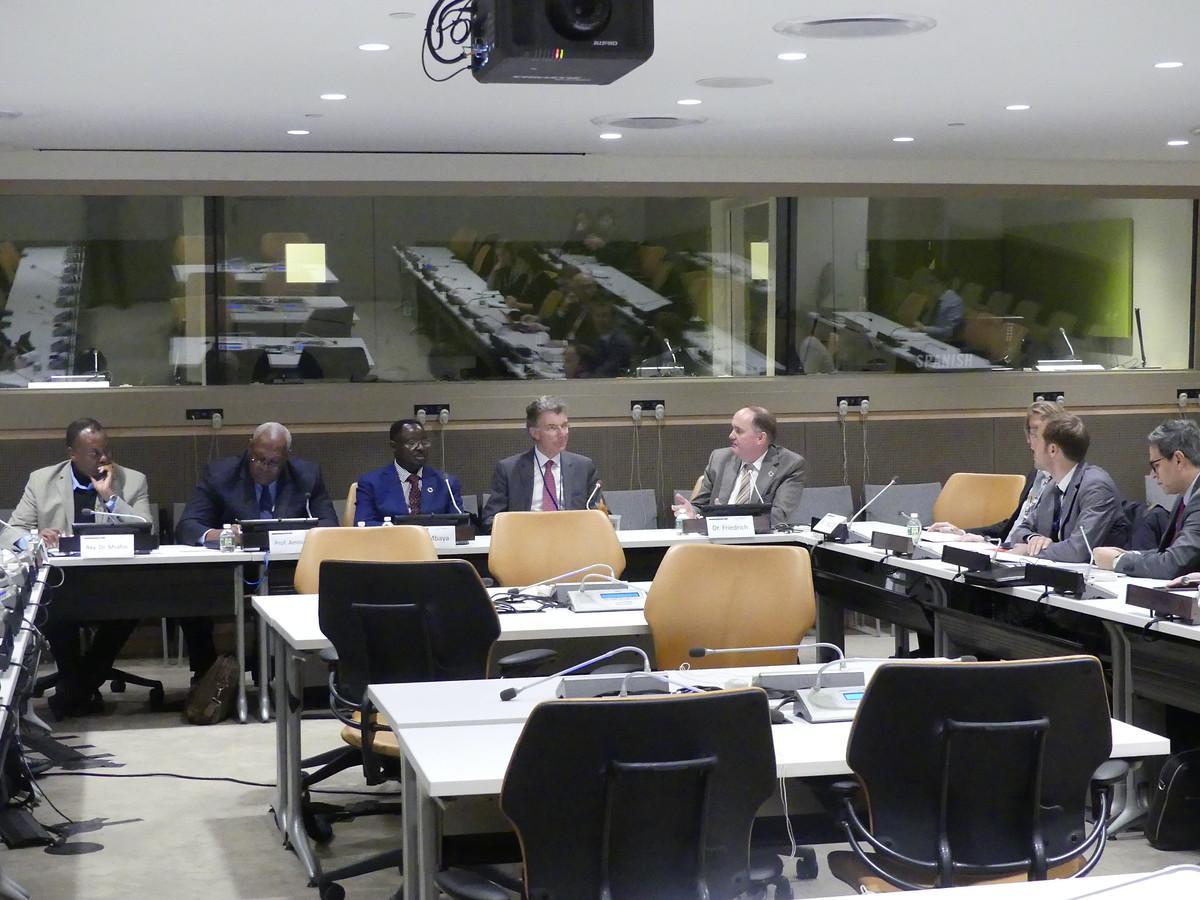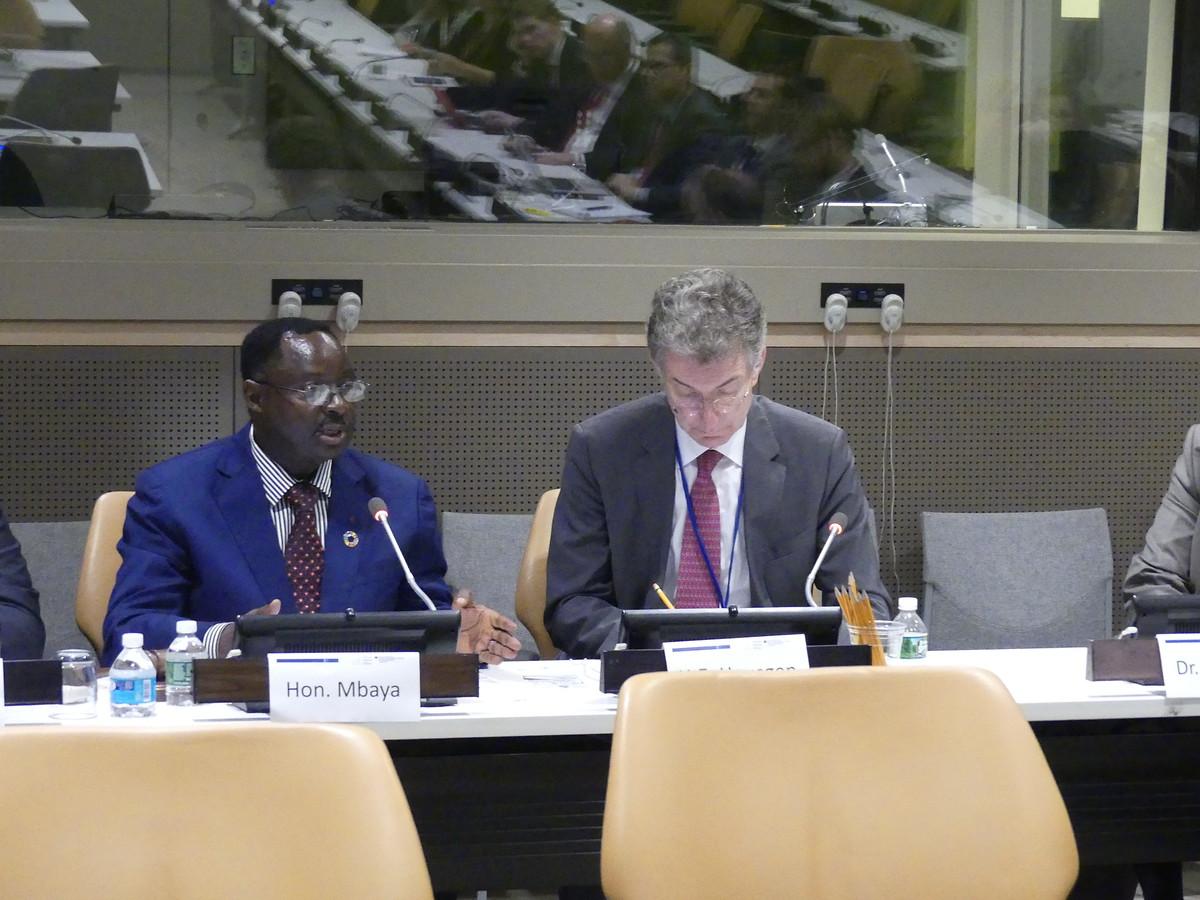Event reports
From November 19th to November 22nd the KAS New York Office held a dialogue program with four African climate influencers subsequent to their participation in COP23 in Bonn. The delegation consisted of Hon. Awudu Mbaya Cyprian, Member of Parliament of the Republic of Cameroon and Executive President of the Pan African Parliamentarians Network on Climate Change (PAPNCC); Rev. Prof. Aidan G. Msafiri, Catholic Priest and UN Climate Change Ambassador as well as Professor for Environmental Ethics and Sustainable Development; Prof. Joseph Armathe Amougou, Director of the National Observatory on Climate Change for the Republic of Cameroon and Hon. Ms. Jacqueline Amongin, Member of Parliament of the Republic of Cameroon and Chairwoman of the Committee on Rural Economy, Agriculture and Natural Resources in the Pan African Parliament. The delegation was accompanied by Prof. Dr. Oliver C. Ruppel, Director of the Climate Policy and Energy Security Program for Sub-Saharan Africa (CLESAP) at Konrad Adenauer Stiftung.
The objective of the dialogue program was to deepen the participants understanding of climate action at the UN and additionally aimed at continuing the discussions held at COP23 with relevant UN departments and institutions as well as with members of academic bodies, Think Tanks, and NGOs in New York. Furthermore, the meetings in New York intended to analyze the outcomes of COP23 as well as to build strong alliances among African experts in order to promote climate friendly policies in Africa.
In cooperation with the Permanent Mission of Germany to the United Nations KAS New York held a public event at the UN Secretariat on November 22nd 2017. The event entitled “Main take-aways of the COP23 for Africa” included a panel discussion moderated by H.E. Ambassador Christoph Heusgen, Permanent Representative of the Federal Republic of Germany to the United Nations.
Key achievements of COP23 discussed during the talks in New York included some of the following aspects:
1.Although the Paris Agreement set out principles, it left the details and procedures to be determined by following COPs. Delegates described COP23 as a vital conference that largely defined technical aspects in the implementation process of the Paris Agreement on the way to 2020. The conference could be seen as having produced a sort of “to do list” if you will, laying the foundation for implementation guidelines which will have to be finalized at COP24 in Poland.
2.The initiative of the “Talanoa dialogue” came highly appreciated by the delegates and will give the global community the opportunity to evaluate progress in 2018 which will allow the redefinition of objectives for the next round of Nationally Determined Contributions (NDCs).
3.The delegates additionally underlined the importance of the launch of InsuRelience Global Partnership, to which The German Federal Ministry for Economic Cooperation and Development (BMZ) contributed 110 million Euros (US $125 million).
4.Delegates also praised the launch of the Ocean Pathway Partnership, which intends to encourage the climate negotiations process to address the relationship between climate change and the ocean.
5.Additionally commended was the finalization of the Gender Action Plan, which was agreed upon at COP23 and will aim to increase the participation of women and girls in all processes related to the United Nations Framework Convention on Climate Change.
6.Delegates also highlighted the renewed climate action commitment by the European Union by announcing that it intends to deposit the ratification instrument of the Doha Amendment to the Kyoto Protocol by the end of 2017. The Doha Amendment ensures the reduction of greenhouse gas emissions by the year 2020.
7.Lastly the Adaptation Fund was replenished with a total of US$93.3 million, ensuring continued funding for communities in developing countries that host projects to improve climate resilience.
While these key achievements were commended by the KAS climate delegation, they also echoed some global voices of criticism concerning the outcomes of COP23. One missed opportunity mentioned by the delegates was that neither reporting requirements nor a general voluntary review process were agreed upon. They called on the international community to pick this up again in Poland and at the interim meetings leading up to COP24. Additionally the delegates described some disillusionment among developing countries at COP23 because there was little commitment on financing and resources for loss and damages as well as the mitigation of greenhouse gases from the developed world.
The delegation was eager to raise awareness for climate justice, which was often subject during the talks with dialogue partners. They jointly underlined the need to raise ambitions before 2020.
Dialogue partners included but were not limited to Achim Steiner, Administrator of the United Nations Development Programme; Jeffrey Sachs, Columbia University Professor for Sustainable Development and Director of the Center for Sustainable Development at The Earth Institute; Abdoulaye Mar Dieye, Assistant Administrator and Regional Director for the Regional Bureau for Africa; Prof. Michael Gerrard, Andrew Sabin Professor of Professional Practice at Columbia Law School and Director of the Sabin Center for Climate Change Law; James Vener, Technical Climate expert on the Nationally Determined Contributions (NDC) Support Programme (UNDP) and Yamil Bonduki, Manager of Capacity Building Programme at UNDP. The delegates were particularly delighted to have the opportunity to meet with two ambassadors from Africa: H.E. Tommo Monthe, Ambassador of Cameroon to the United Nations and H.E. Amb. Kintu Nyago, Deputy Permanent Representative of Uganda to the United Nations.
During the talks the delegates took the opportunity to discuss key climate questions with representatives within the UN orbit and were able to identify common grounds and explore possibilities of future cooperation. After the dialogue program the participants recapped that they are re-energized for COP24 in Poland, set to be held in December 2018 and are looking forward to integrate their insights collected in Bonn and New York into their professional and academic work in Africa.



